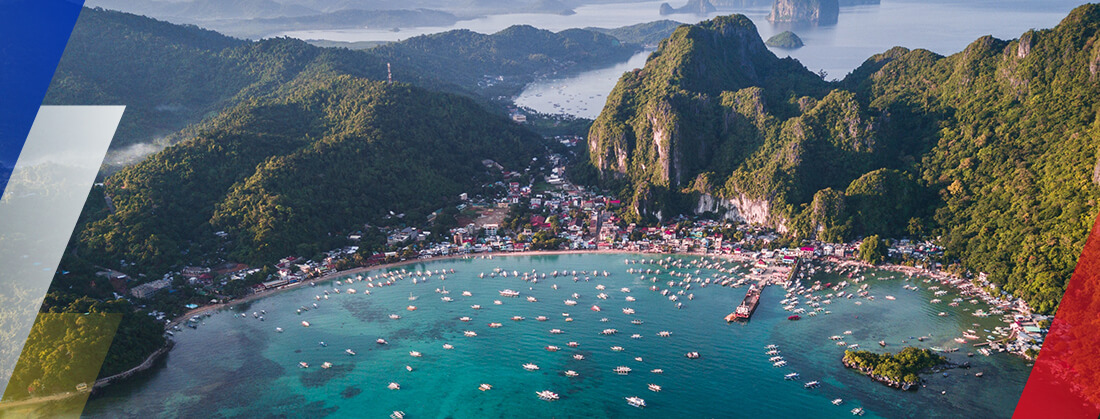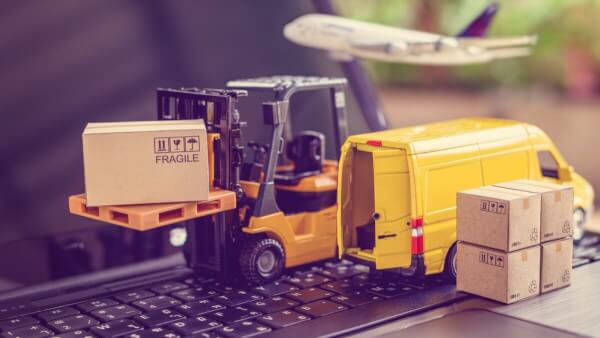Moving to Ireland from Australia
Looking to move to Ireland from Australia? We'll fill you in on the travel and visa requirements, healthcare, cost of living, pros, cons and much more.

The Philippines is the second largest archipelago in the world, making it a popular tourist destination for beach lovers, and anyone looking for a chance to dive, snorkel, sail and kayak - or simply kick back and relax. If you’ve fallen in love with the Philippines and are considering moving there longer term, you’ll need a job to cover your costs.
This guide gives you a great starting point for your research, looking at where to find jobs as well as visa and work permit requirements.
We’ll also cover ways to keep down your costs. Wise international payments can reduce your banking costs as you move overseas, and a Wise multi-currency borderless account can be an effective way to access Philippine pesos without needing a local bank account. More on that later.
The lifestyle you have in the Philippines will vary widely depending on where you’re headed and the type of job you find. Working in a Manila multi-national will naturally be somewhat different to taking a position as a dive instructor on one of the many beautiful islands.
However, no matter where you are in the Philippines you’ll quickly notice some cultural differences which change the way business is done. You’ll likely find that your work environment is quite formal and status driven - often based around a family-like structure. Business is done based on relationships, so having a personal touch with your colleagues and business associates is essential - be prepared to share, and get to know a lot more about your office buddies than you might otherwise.
It’s also worth knowing that while the healthcare infrastructure in the cities is generally fairly good, the out of pocket expenses are higher than you might expect. Make sure you investigate private insurance costs, even if you’re entitled to public healthcare cover, so you can weigh up the benefits.
To work in the Philippines, you’ll usually need what’s known as a pre-arranged employment visa. This is a long term non immigrant visa type, and can be sorted through any of a number of regional immigration offices once you arrive in the Philippines¹.
You’ll also need to register for an Alien Employment Permit (AEP), and depending on the situation may need to get a temporary work permit while your paperwork is being checked.
To get your work visa you’ll need to provide the following:
The supporting documents needed can prove fairly weighty, and many need to be arranged by your employer. Get help with your application as the process can feel complex. You’ll also need to register for your AEP with the Department of Labour and Employment (DOLE) - again, your employer should help with this application at a regional DOLE office near your place of work.
Getting your visa and working permissions sorted in the Philippines involves a fair amount of red tape - read up on the requirements for your particular situation, and get all the help you can to make sure it goes smoothly².
There’s no listed age restriction for applying for a work permit in the Philippines. Each application is taken on its own merit based on the specific situation.
Australia and the Philippines signed a tax treaty back in 1979 which should ensure that no citizen of either country needs to pay tax twice on the same income. Instead, the tax paid in one country is offset against obligations in the other³.
That said, tax is a complex area, and you may well need to have an accountant or other tax professional help you clarify what tax you owe, and where. Usually you’ll pay tax in the country you’re considered tax resident. Tax residency is decided based on where you’re spending your time, and where your income is derived from. Find more about tax in the Philippines online, and get a professional opinion if you’re unsure about your obligations.
If you end up needing to pay personal income tax in the Philippines, your bill will be calculated based on a progressive scale which runs up to 35% for the highest earners⁴.
You can start your job hunt using one of the large local jobs listings websites, like Job Street⁵, or a global recruitment brand like Monster⁶ or Indeed⁷. It’s well worth narrowing your search if you know the field or region you want to work in, as there are also more local listings available.
If you’re looking for a job teaching English, or working in tourism and related fields, look for specific recruitment sites dealing with this type of work to make your search more productive. Finally, if you’re looking for a more specialist, high level or professional job, don’t forget Filippino culture is very much based on relationships. Use your network - and get yourself known in your niche through making online connections and building a local reputation, to help you find the right role for you.
Getting a local bank account can make it easier to manage your money day to day. It probably makes sense to start your search for the perfect accont with one of the largest banks in the Philippines, such as BDO Bank⁸, Metrobank⁹ or BPI¹⁰. You might also try your regular bank if they operate in the Philippines - Citibank and HSBC both have offices there, for example.
Usually you’ll need to be present in the Philippines and make an appointment at the bank you choose, to get your account set up. You’ll have to provide documents including your passport, evidence of your residential address, visas and registration documents and an opening deposit. Some banks also ask for a reference from your home bank to show you’re a good prospective customer.
To make payments in Philippine pesos before you move, you’ll probably need to send money from your account in Australia to cover the costs. This can result in poor exchange rates and high fees if you’re not careful to check the terms with your bank or chosen provider. Doing some research can save you money. Check out the low cost international payments available from Wise as a great starting point. If you are looking for a way to send money to the Philippines, Wise could be an option.
Alternatively, instead of waiting until you’re in the Philippines to open an account with a traditional bank, you can open a borderless account online with Wise. You can hold money in over 40 currencies, and get local account details for AUD, USD, NZD, GBP and EUR to receive money in these currencies via local payment methods. All you need to do is pay into the account in dollars from your regular Australian bank, and then switch currencies to pesos within the account. Currency conversion uses the Google exchange rate with a low transparent fee - which can work out much cheaper than using your normal bank. You’ll then be able to send and spend your pesos online or using your linked debit card.
The Philippines is well known for the warm welcome afforded to visitors. To settle in quickly, make sure you get your job lined up, and arrange your visa, work permit and access to local funds before you travel. A borderless account can mean you have one less thing to worry about when arranging your move - so you can get on with enjoying your new life.
Sources:http://immigration.gov.ph/visa-requirements/non-immigrant-visa/pre-arranged-employment-visa#
https://www.bir.gov.ph/index.php/international-tax-matters/international-tax-agreements.html
http://taxsummaries.pwc.com/ID/Philippines-Individual-Taxes-on-personal-income
All sources accurate as of September 23 2019
*Please see terms of use and product availability for your region or visit Wise fees and pricing for the most up to date pricing and fee information.
This publication is provided for general information purposes and does not constitute legal, tax or other professional advice from Wise Payments Limited or its subsidiaries and its affiliates, and it is not intended as a substitute for obtaining advice from a financial advisor or any other professional.
We make no representations, warranties or guarantees, whether expressed or implied, that the content in the publication is accurate, complete or up to date.

Looking to move to Ireland from Australia? We'll fill you in on the travel and visa requirements, healthcare, cost of living, pros, cons and much more.

Looking to move to Dubai UAE from Australia? We'll fill you in on the travel and visa requirements, healthcare, cost of living, pros, cons and much more.

Looking to move to Italy from Australia? We'll fill you in on the travel and visa requirements, healthcare, cost of living, pros, cons and much more.

Discover how international moving companies in Australia operate, from services offered to logistics, ensuring a smooth relocation to your new home abroad.

Relaxing by the Pacific or Atlantic oceans, high altitude skiing across alpine country, trek through the desert or visit stunning national parks such as...

The UK is one of the most popular destinations that Aussies, and other foreign nationals alike flock to see Buckingham palace, the Scottish highlands or the...